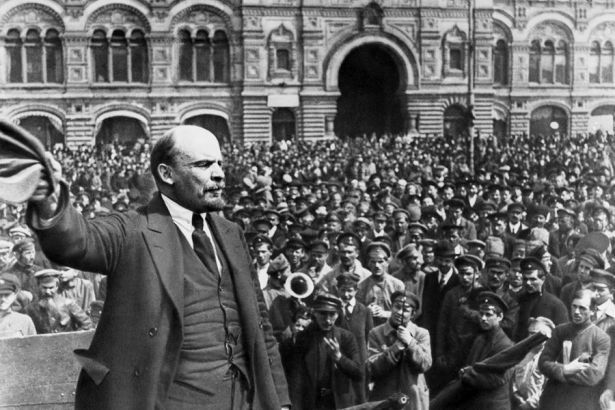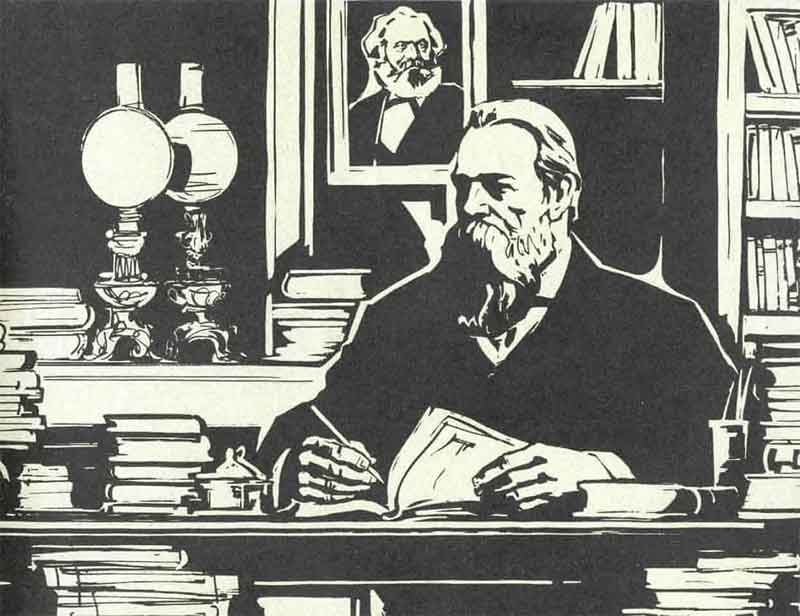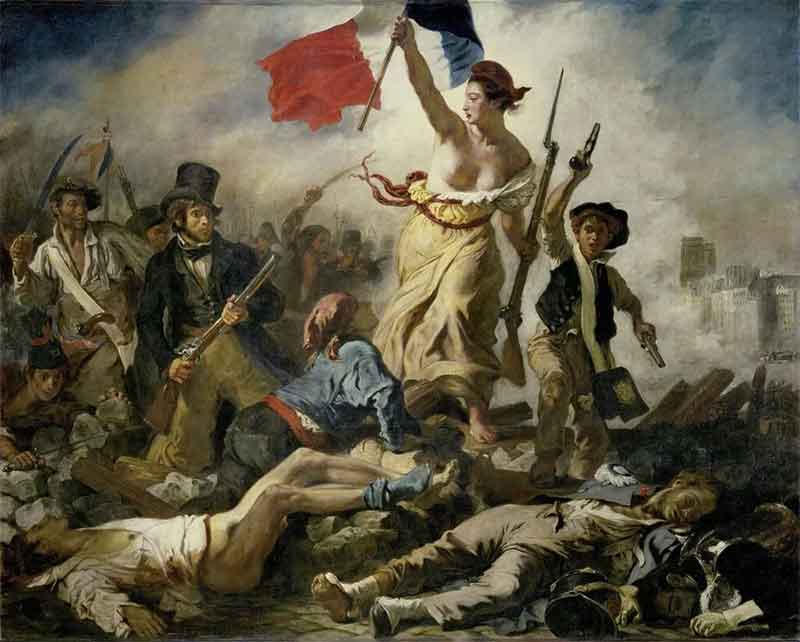
[Part I]
Lenin yet, about 150 years since his birth, creates controversy. Funny figures make funnier statements while a group of scholars, white, pink and “red” in color, continue condemning the Bolshevik leader – a bold show of class conflict in the areas of ideology and politics. This reality makes it an imperative to reiterate Lenin’s analysis and class position on his birthday – April 22 (1870) – as yet those have not been proven erroneous.
Stephen Bannon, US president Trump’s former chief political strategist, once declared: “I am a Leninist.” He was talking to a New York university academic. “Lenin wanted to destroy the state and that’s my goal too,” said Bannon. (Victor Sebestyen, “Bannon says he’s a Leninist: that could explain the White House’s new tactics”, The Guardian, February 6, 2017) A “strange” statement! A racist-ultra-rightist claims to be a Bolshevik! Statements isolated from entire class point of view are made to claim “something”.
It’s not a single case from a matured bourgeois democracy. Referring to an admirer of Tony Blair, Sankar Ray writes from India, a country in the global south: “Bolsheviks under his [Lenin] leadership set up a totalitarian state [….] It was followed by red terror [….] Bolshevik regime from the very beginning suppressed individual liberty [….] Lenin’s socialism was totalitarian [….]” (“Dissent and its diabolical destiny”, Frontier on-line, Kolkata, March 31, 2018) It was “red terror” felt by white “pacifists”.
It’s not only Bannon finding his resemblance in Lenin, and Ray finding “red terror” in Lenin’s and Bolsheviks’ actions. The Guardian-article cited above has its analysis also. The article said:
“[…] Bannon has an assortment of Leninist political tactics that could have come from the Bolshevik leader’s playbook.
“Two days after Lenin seized power […] he began an assault on the press [….]
“Three days after Donald Trump’s inauguration Bannon told the New York Times: ‘The media should be embarrassed and humiliated and keep its mouth shut and just listen [….]
“Kellyanne Conway’s ‘alternative facts’ are not entirely different from the ‘objective truth … the greater truth’ that Lenin used to call for in the USSR’s state-run newspapers. [….]
“[….]
“Breitbart, the website Bannon created, and the hate-filled language of alt-right politics, are decidedly Leninist in tone. […] Lenin needed to invent enemies […]. In post- revolutionary Russia it was the […] richer farmers who were ‘sucking the blood’ of poorer peasants, bankers who were war profiteering, the ‘elite’ [….]
“Lenin abolished the existing legal system and started afresh. Within a few weeks his regime closed down the first freely elected parliament in Russia’s history – and the Soviets never allowed another one. It would be wrong to assume that the next step for Trump is the abolition of Congress, or the construction of labour camps. But the unprecedented war by tweet between the administration and the judiciary over the president’s executive order on immigration has real echoes of Bannon’s revolutionary hero.” (op. cit.)
So, human is tiger as both of them consume meat, and human is fish as both of them swim, and human is frog as both of them jump, and elephant is human as both of them walk. Doesn’t the analysis, if it’s an analysis, and the comparison made in the opinion piece mentioned above, form argument in the human-tiger-fish-frog-elephant-way? This is the scholarship the mainstream practices! They don’t care about fallacy in the area of propaganda.
This scholarship practiced by Bannon, Ray, Sebestyen and Co. digs in the following position: The entire world population has the “same” class point of view as there, on this planet, “is” only a single class, which leads to “a single” class interest. This premise leads all these scholars to “analysis” that goes down to the level of pre-elementary learning. And, the motive directing the “single-class scholarship” is: Dominate all the classes, all the classes have to go by the ideology that secures interest of the dominating class.
A look at Lenin, on his birthday, April 22, helps identify the nature of the statements referred above; and economics and politics are appropriate issues to look at Lenin as a lot of questions concerning these regularly emerge while this group of scholars condemns Lenin.
A transition period
In October 1919, Lenin wrote:
“Theoretically, there can be no doubt that between capitalism and communism there lies a definite transition period which must combine the features and properties of both these forms of social economy. This transition period has to be a period of struggle between dying capitalism and nascent communism — or, in other words, between capitalism which has been defeated but not destroyed and communism which has been born but is still very feeble.
“The necessity for a whole historical era distinguished by these transitional features should be obvious not only to Marxists, but to any educated person who is in any degree acquainted with the theory of development. Yet all the talk on the subject of the transition to socialism which we hear from present-day petty-bourgeois democrats […] is marked by complete disregard of this obvious truth. Petty-bourgeois democrats are distinguished by an aversion to class struggle, by their dreams of avoiding it, by their efforts to smooth over, to reconcile, to remove sharp corners. Such democrats, therefore, either avoid recognising any necessity for a whole historical period of transition from capitalism to communism or regard it as their duty to concoct schemes for reconciling the two contending forces instead of leading the struggle of one of these forces.” (“Economics and Politics in the Era of the Dictatorship of the Proletariat”, Collected Works, vol. 30, Progress Publishers, Moscow, erstwhile USSR, 1965)
Does anyone disagree with these: “transition period”, “combine the features and properties of both these forms of social economy”, “a period of struggle between dying capitalism and nascent communism”, “communism […] still very feeble”?
In this situation, what steps should a class seizing political power take while the class has antagonistic relation with the class overthrown from the seat of political power? Has the class seized political power to surrender it to the class unseated? Does politics provide opportunity for amateurishness and sentimentalism? Only the petty-bourgeois democrats dream for amateurishness and live with sentimentalism in politics as they don’t have to organize any political move other than extending support to their masters, as they deny looking at facts of class struggle and the history and science of politics based on class.
Lenin mentions the reality within which the proletariat seized power in 1917-Russia:
“In Russia, the dictatorship of the proletariat must inevitably differ in certain particulars from what it would be in the advanced countries, owing to the very great backwardness and petty-bourgeois character of our country. But the basic forces — and the basic forms of social economy — are the same in Russia as in any capitalist country, so that the peculiarities can apply only to what is of lesser importance.” (ibid.)
Can the scholars of the brand cited above deny this: “very great backwardness and petty-bourgeois character” of Russia? Should not political measures follow reality, especially in case of political struggle between two classes with opposite interests, especially when one of the classes is losing its property, power and privilege?
Lenin identifies the basic forces in the Russian reality: “the bourgeoisie, the petty bourgeoisie (the peasantry in particular) and the proletariat”, and writes:
“The economic system of Russia in the era of the dictatorship of the proletariat represents the struggle of labor […] making its first steps — the struggle against petty commodity production and against the capitalism which still persists and against that which is newly arising on the basis of petty commodity production.” (ibid.)
Can these facts – “the struggle of labor […] making its first steps”, “the struggle against petty commodity production and against the capitalism which still persists and against that which is newly arising on the basis of petty commodity production” – be denied? How can labor struggle against persisting capitalism, against petty commodity production? Is it through surrendering to exploiters all measures to secure political power of labor with a meek posture, with measures that help capitalism and petty commodity production? Does the history of class struggle teach this? Are not practical measures required in the areas of political power and economy? Or, is it only sentimentalism and good wishes?
What was the proletariat doing during the period? Answer to the question provides rationality to the measures taken, which are now condemned by those scholars. In brief, Lenin writes, the acts were:
“We accomplished instantly, at one revolutionary blow, all that can, in general, be accomplished instantly; on the first day of the dictatorship of the proletariat, for instance, on October 26 (November 8), 1917, the private ownership of land was abolished without compensation for the big landowners — the big landowners were expropriated. Within the space of a few months practically all the big capitalists, owners of factories, joint-stock companies, banks, railways, and so forth, were also expropriated without compensation.” (ibid.)
Should any scholar dwelling with the issue of politics of classes suggest that sitting with eyes and ears closed would have been appropriate for the proletariat seizing power? Were anywhere in any phase/era/period of history of classes seizing power the imagined idle sitting followed? A lesson with history provides the answer.
Lenin mentions a few more facts from the reality the proletariat was facing at the time as he writes:
“Peasant farming continues to be petty commodity production. Here we have an extremely broad and very sound, deep-rooted basis for capitalism, a basis on which capitalism persists or arises anew in a bitter struggle against communism. The forms of this struggle are private speculation and profiteering versus state procurement of grain (and other products) and state distribution of products in general.”
Is there any explanation required after finding “peasant farming continues to be petty commodity production”, “we have an extremely broad and very sound, deep-rooted basis for capitalism, a basis on which capitalism persists or arises anew in a bitter struggle”, “forms of this struggle are private speculation and profiteering versus state procurement of grain […] and state distribution of products in general”? Don’t these get manifested in the arena of politics, stretching from political party to governing arrangement? How to deal with these manifestations? Are mere good wishes, petty-bourgeois sentimentalism and solemn declarations the tools to deal with these? Scholars, it’s hoped, condemning Lenin should review respective positions.
Lenin illustrates “these abstract theoretical propositions” with actual figures” provided by the People’s Commissariat of Food in Soviet Russia:
“State procurements of grain in Russia between August 1, 1917, and August 1, 1918, amounted to about 30,000,000 poods, and in the following year to about 110,000,000 poods. During the first three months of the next campaign (1919-20) procurements will presumably total about 45,000,000 poods, as against 37,000,000 poods for the same period (August-October) in 1918.” (ibid.)
Then, he makes the following observation:
“These figures speak clearly of a slow but steady improvement in the state of affairs […] This improvement is being achieved in spite of difficulties without world parallel, difficulties due to the Civil War organised by Russian and foreign capitalists who are harnessing all the forces of the world’s strongest powers.” (ibid.)
The fact the group of scholars loves to forget is: “[D]ifficulties without world parallel, difficulties due to the Civil War organised by Russian and foreign capitalists who are harnessing all the forces of the world’s strongest powers.” All these were being faced by the proletariat’s political power in Soviet Russia. These scholars don’t even labor to make comparisons on the basis of information from other classes in other countries during situations of civil war, invasions, broken down railway communication, subversion. It’s their type of intellectual exercise. Shall they recollect the measures, fatal to the people, the British colonial rulers took in India as the Japanese army was taking Singapore, Myanmar [Burma, at the time], etc. areas during the WW II? It’s not a single example. Europe bears more examples.
In the article, Lenin cites “the lies and slanders of the bourgeoisie of all countries and of their open or masked henchmen”, the “raging and fuming” of the bourgeoisie “against Bolshevism and is organising military expeditions, plots, etc., against the Bolsheviks”. The group of theoreticians denies recollecting these facts. Even they don’t compare the Russia facing military campaigns organized by imperialists with the Libya and Iraq facing imperialist intervention. These countries operated fully operational, well-armed militaries, and were having a vast arsenal and resources. What does the proletariat in Russia had within its control during those imperialist military campaigns? A detail picture of the two helps anyone compare the two, and the tasks the proletariat in Russia had to carry on during the period. In that situation, the group of intellectuals expect the best and the perfect, by bourgeois standard, performance by the proletariat in Russia. And, these intellectuals compare that Russian-proletarian-performance with the performance by the matured bourgeois democracies. A great expectation! Even, they don’t look into the actual state of affairs today in these matured bourgeois democracies: level and extent of accountability/non-accountability, transparency/non-transparency, power/disregard of legislative assembly, separation/concentration of power, electoral process controlled by capital, etc. Any serious study exposes the naked truth: no-accountability, no-transparency, etc. Political incidents in these countries are burning examples. Even, the related situation is deteriorating; and the deteriorating-case is not in a single country with bourgeois democratic/pseudo-bourgeois democratic system, but in many such countries.
Thus, the scholars get engaged with the task of condemning Lenin. Bravo, bravo!
The article is the first section of part 8 of a series commemorating the Great October Revolution Centenary. Parts 1-6 of the series were originally carried by Countercurrents.org and Frontier.
Farooque Chowdhury writes from Dhaka, and he does neither operate any e-social media account including facebook nor any blog/web site.













































